Brain Cancer
Risk Factors
- Radiation Exposure – The best known environmental risk factor for brain tumors is radiation exposure, most often from some type of radiation therapy.
- Family History – Most people with brain tumors do not have a family history of the disease, but in rare cases brain and spinal cord cancers run in families.
- Immune System Disorders – People with impaired immune systems have an increased risk of developing lymphomas of the brain.
- Genetic Conditions – Neurofibromatosis type 1 (NF1) – Genetic disorder, also known as von Recklinghausen disease, Neurofibromatosis type 2 (NF2), Tuberous selerosis, Von Hippel-Lindau disease, Li-Fraumeni syndrome, Gorlin syndrome (basal cell nevus syndrome), Turcot syndrome, Cowden syndrome.
Warning Signs & Symptoms
- Headache
- Nausea
- Vomiting
- Blurred Vision
- Balance problems
- Personality or behavior changes
- Seizures
- Drowsiness or even coma
- Loss of hearing
- Weakness of some facial muscles
- Trouble swallowing
- Numbness, weakness, or lack of coordination in the arms and/or legs, as well as bladder or bowel problems.
- Signs and symptoms may occur gradually and become worse over time, or they can happen suddenly, such as a seizure.
Certain signs and symtpoms could suggest that a person might have brain cancer. But tests are needed to confirm this. And keep in mind that these symptoms are most often caused by something other than cancer. At this time, there is no sure way to prevent brain cancer. Having one or more of the symptoms above does not mean that you definitely have brain cancer. In most cases, the patient’s survival is determined by their age, the type of tumor, and its location, not by how early it is detected. But as with any disease, earlier detection and treatment is likely to be helpful. However, if you are experiencing any of the above symptoms, the best way to find it is to report any possible signs or symptoms to the doctor right away.
Early Detection Saves Lives
This information was provided by the American Cancer Society. © 2013 American Cancer Society, Inc. All rights reserved. The American Cancer Society is a qualified 501[c][3] tax-exempt organization. www.cancer.org
